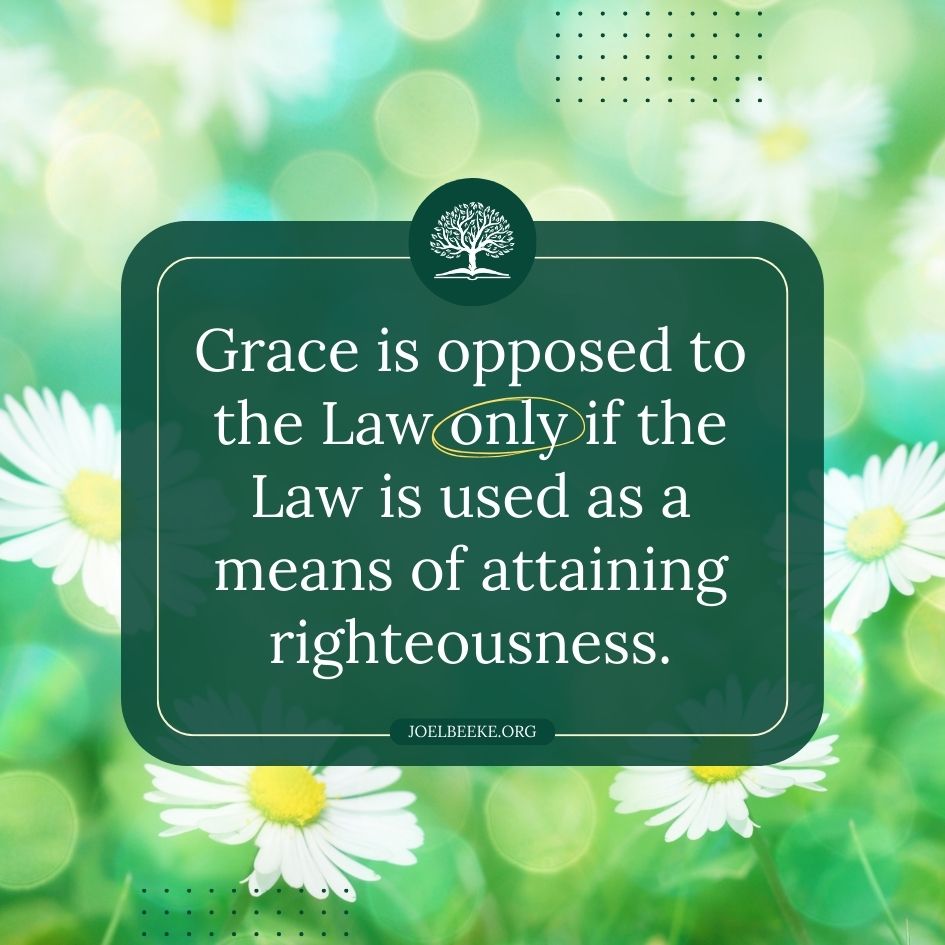
If you ask Christians about the place of the Law in the Christian life, you are sure to get many mixed answers, with some even denying the place of the Law altogether. What did the Puritans teach about the place of the Law in God’s purpose of grace?
The Law and the Covenant of Grace
The Puritans wanted to integrate the Law of God into the entire system of Christian theology. They taught that at the moment of man’s fall, God entered into relation with sinful man not on the basis of a covenant of works but on the basis of a covenant of grace in which, from its beginning in Eden onward, “the Redeemed of the Lord were…brought into a new-Relation to God in…Christ” and were accepted “upon terms of faith.”1Nehemiah Coxe, A Discourse of the Covenants that God Made with Men before the Law (London, 1681), 47; see also Kevan, The Grace of Law, 120–21. This covenant of grace is the same throughout the Old and New Testaments.2The Puritans held a variety of views about the Mosaic covenant, making any “accurate classification of the Puritans on the basis of their views” difficult. In general, Puritans either regarded the Mosaic covenant “as a Covenant of Works” or “a Covenant of Grace.” And yet, so many concessions are made by writers on either side that “the cumulative weight of the concessions” shows that “it was agreed that the mosaic covenant was a form of the Covenant of Grace; and this view was embodied in the Confession of Faith.” Kevan, The Grace of Law, 113–14, 117. See also WCF 7.5–6. This means that all God’s dealings with His people since the fall, including the giving of the Law, had gracious intentions. The Law was given as a means of grace.
The Antinomians, however, “were unable to perceive any grace in the giving of the law,” so they challenged “the preaching of the law as an instrument of grace” as “illegal preaching,”3Kevan, The Grace of Law, 124, 126. sometimes even calling those who preached it “ministers of the devil.”4Gamble, Christ and the Law, 19. But to the Puritans, it was plain that the Law had evangelical intentions. We need only consider, according to Burgess, “the way God introduces Himself, the pardon of sin that is offered, the faith that is accepted, the sacrifice and blood that are provided, and the continuity of the covenant with Abraham and Isaac.”5Burgess, Vindiciae Legis, 151–236; see also Kevan, The Grace of Law, 123–24. “The Passover sacrament was the sign of grace”; the preface to the Ten Commandments is an expression of grace, indicating “that obedience is to be in the channel of the covenant,” of having God be our God; and “at Sinai there was a formal betrothal between God and his people.” John Ball, A Treatise of the Covenant of Grace (London, 1645), 108–42. The Mosaic covenant, therefore, is consistent with grace. Thus, we must look at the Law with “gospel spectacles.”6Francis Roberts, Of God’s Covenants…The Mysterie and Marrow of the Bible (London, 1657), 789. “God doth use the law instrumentally, for to quicken up grace, & increase it in us.”7Burgess, Vindiciae Legis, 183.
Grace is opposed to the Law only if the Law is used as a means of attaining righteousness. The Israelites “notoriously perverted” God’s intention in the Law: “By separating the law from faith, they made law a cause of death and put it into apparent opposition to Christ.”8Kevan, The Grace of Law, 131. Richard Byfield wrote, “The Law for righteousness, and Christ for righteousness, do stand in direct opposition; yet the Law is not against the gospel: the Law drives to Christ alone.”9Richard Byfield, The Gospels Glory, without prejudice to the Law (London, 1659), 107. When the apostle Paul writes that we are not “under the law, but under grace” (Rom. 6:14), he does not set grace in opposition to the Law but to the wrong use of the Law. “Paul does not dismiss the Law from the life of the believer,” said John Owen, “but grapples with it in its mistaken and perverted use.” It was never God’s intention for man to be justified by the Law.10John Owen, Of the Mortification of Sin in Believers, in Works (Oxford, 1656), 6:47; Kevan, The Grace of Law, 133. Legalistic Law-keeping is thus an offense against the Law of God. Therefore, any antithesis between the Law of God and the grace of the Gospel is rooted not in these revelations but in the pride and hardness of our hearts that pervert the right end of the Law.11Kevan, The Grace of Law, 251–53.
Christ Is the “End” of the Law—But the Law Has Not Ended
What does it mean, then, that Christ is the “end of the law” (Rom. 10:4)? “The antinomians held that the Law was abrogated, the Baxterians, that the Law was modified, and the Puritans, that the Law was established.”12Kevan, 137. The Antinomians read “the end of the law” to mean the Law’s termination. Many Puritans, however, understood “end” to mean “purpose” or “intended aim.”13Some Puritans did hold that “the end” meant “cessation,” but this was not problematic since they also read “Law” to mean “a means of obtaining righteousness.” Kevan, The Grace of Law, 140. They maintained that “the eternal Law of God was incapable of being terminated in time.” The “end of the law” is thus the fulfillment of the moral Law by Christ and, through His work, “the obedience of regenerate sinners.”14Kevan, 165. Most of the Puritans affirmed that as Christ fulfilled the moral Law, God imputed to believers the righteousness of Christ’s active and passive obedience. In His active obedience, Christ performed the whole Law and thus “has both recovered the glory of the Law, and fully met its claims.” Thomas Goodwin, Of Christ the Mediator, in Works (London, 1692), 5:102, 125, 180. Christ in His passive obedience has “felt and borne the weight of God’s wrath” on the cross (WLC 49). The Antinomians misread the doctrine of imputation to mean that holiness is imputed to believers— again, confusing the categories of justification and sanctification. It is righteousness, not holiness, that is imputed. See also Ferguson, The Whole Christ, 172.
To explain how the Law is still valid in the wake of Christ’s redemptive work, the Puritans drew the necessary distinction between a commandment and a covenant, or in other words, between the Law’s substance and its circumstance or context. We must not confuse the concepts of command and covenant: the Law has commanding and covenanting aspects, and these must be distinguished. Thomas Taylor said that the believer is under the Law in its substance, its command, but not in its circumstance, its covenant.15Taylor, Regula Vitae, 19. “God’s covenants change, but the same constant Law is to be honoured throughout.”16Kevan, The Grace of Law, 251. When the new covenant replaced the old, “the Law as a Covenant was abrogated,” but the Law still has force as a commanding rule.17Kevan, 151. See also William Hinde, The Office and Use of the Morall Law of God in the days of the Gospell (London, 1622), 16. The grace of Christ does not annul the Law as a command: “If the law might be disannulled as to new creatures, then why doth the Spirit of God write it with such legible characters in their hearts?”18Manton, Hundred and Nineteenth Psalm, 1:5. The saving purpose of the Law found its fulfillment in Christ, whose work of redemption has become the end—the fulfillment—of the Law, not its termination.
Therefore, the Law as a covenant of works is perfectly fulfilled by Christ, and we are dead to it;19Kevan, The Grace of Law, 159. that is, we are dead to the Law as a covenant in the sense that we are “never more looking for righteousness and justification of life that way” and no longer expecting by duties to earn God’s favor.20Byfield, Gospels Glory, 36. The Law in its commanding aspect remains, however, as a rule for the Christian walk.
Is this true in your life experientially? Has the Holy Spirit taught you that you are dead to the Law as a covenant in terms of your justification but that you are under the Law as a rule or command in terms of your sanctification?
Excerpt From
God’s Grace Shining through the Law
Joel R. Beeke







